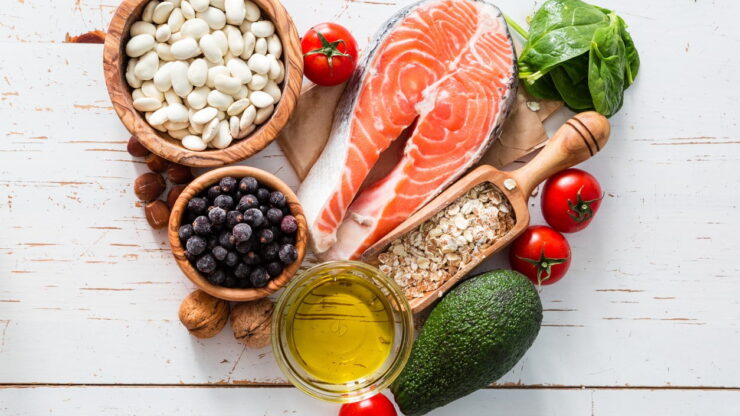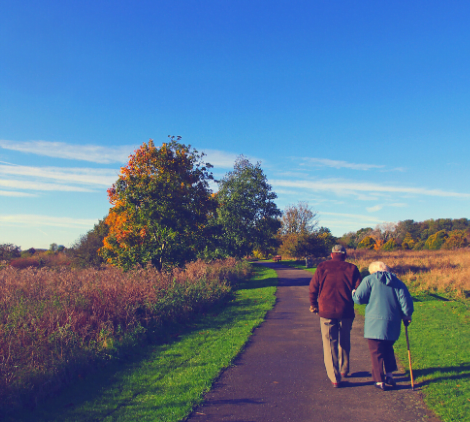
Power Foods for Seniors
Key Takeaways
- Power foods like leafy greens, berries, and whole grains support senior health.
- Protein-rich foods help maintain strength and muscle mass.
- Hydration is just as important as solid nutrition.
- Balanced meals improve energy, immunity, and mood.
- LifeWorx caregivers can assist with preparing nourishing, tailored meals.
If you have children, you know how hard it is to get them to eat a healthy diet. But they are not the only ones who can be tricky to keep well nourished! Seniors pose special challenges of their own. From shifts in their taste buds to a decrease in their appetite, age-related changes can make elderly people especially susceptible to calorie and nutrient deficiencies.
While you cannot force an older person to eat something he or she does not like, the good news is that you really don’t have to. There are plenty of great ingredient choices out there, with a variety of tastes and textures to appeal to everyone. We asked leading nutritionists for suggestions of power foods for the elderly – appealing ingredients that pack benefits for aging people in every bite.
Here is what made the “A” list:
Greek Yogurt: Many seniors don’t get enough protein, warns Janet Colson, Ph.D., R.D., a professor of nutrition and food science at Middle Tennessee State University. “Meats can be difficult for an older person to chew,” she explains. That’s where Greek yogurt comes in—it’s easy to spoon and swallow, and a typical serving-size cup packs about 17 grams of protein. There are a lot of creative ways to incorporate it into meals. “I like to add it to mashed potatoes or use it as a topping on baked potatoes instead of sour cream,” Colson says. You can also add a few dollops to a casserole.
Eggs: Eggs are another easy-to-eat source of protein. They deliver many other nutrients as well, including vitamins B6, B12, and D, and minerals such as zinc, copper, and iron. The yolk is “pure gold” in every sense: “It contains choline, which is fantastic for the brain and eyes,” says Jonny Bowden, Ph.D., C.N.S., bestselling author of The 150 Healthiest Foods on Earth.
Oranges and Orange Juice: “They’ve got lots of Vitamin C, so they can help give elderly people’s immune systems a boost,” says Nancy Courduff, MS, RD, LDN, a clinical dietitian at Stella Maris, a long-term rehabilitation and hospice facility affiliated with Mercy Medical Center in Baltimore, MD. Oranges are also great for another reason: Many seniors’ ability to taste food decreases as they reach their 80’s and beyond, but the ability to perceive sweetness tends to linger, making oranges extra-appealing.
Pomegranate Juice: Yes, like all juices, it’s high in naturally occurring sugar. “But it is also full of antioxidants,” says Bowden. Pomegranate juice is also rich in anti-inflammatory substances, which can help fend off conditions such as cancer, heart disease, and Alzheimer’s.
Oatmeal: Warm and comforting, it’s also full of fiber, which can prevent or counteract the constipation so common among the elderly, says Colson. Oatmeal also can keep cholesterol levels healthy and blood-sugar levels steady. In fact, oatmeal’s superpowers are vast, ranging from revving the immune system to staving off high blood pressure. If your senior isn’t an oatmeal fan, enriched hot and cold cereals are also good choices, says Courduff.
Berries: It is easy to up the nutritional ante on a senior’s breakfast cereal, lunch, salad, and other meals by sprinkling in some blueberries, raspberries, or sliced strawberries, says Bowden. “They’re not a hard sell, and they’re small and easy to chew and swallow,” he notes. And they are bursting with vitamins, antioxidants and phytochemicals. These substances help the body by easing or preventing a variety of problems, including arthritis, diabetes, high blood pressure, and certain cancers.
Beans: They are great in everything from soups to salads and sides—and, of course, they’re inexpensive. But the benefits they bring are priceless: “Most people know that beans are rich in protein and fiber, but they don’t know that they’re also high in antioxidants,” reveals Bowden.
Nuts: They can help lower LDL (“bad”) cholesterol, keep blood vessels healthy, and benefit the body in other ways, like delivering fiber, vitamin E, and Omega-3 fatty acids. The only drawback is that nuts can be difficult for some seniors to chew. Serve nut butters instead, or soak the nuts overnight so they soften, Bowden recommends.
Avocado: With its mild taste and buttery texture, it’s a popular item among both older and younger adults. It can add nutritional value to a sandwich or salad, and even act as a butter substitute. “And it’s a phenomenal food!”, raves Bowden. “It’s high in good fat, and also has lots of fiber.”
Cold-Water Fish: Adding a little surf to your favorite senior’s turf can keep their mind sharp. Cold-water fish like salmon and tuna are rich in the best kinds of Omega-3 fatty acids. “They become incorporated into the brain and make the cell membranes more flexible,” explains Colson.
Water: “In many seniors, the thirst mechanism is depressed,” Colson says. As a result, many elderly people live in a state of chronic dehydration. Put a container of water out, and make sure your senior has some throughout the day: Ideally, he or she should take in about 64 ounces of fluid daily, through water, other beverages, or watery produce (such as melons and berries).
Go Easy on These…
What shouldn’t a senior eat? There’s no one-size-fits-all solution to nutrition the elderly. And there is a certain logic to letting the truly elderly (say, people in their mid-80s or above) enjoy whatever they please. But you may want to think twice or consult a doctor before offering these foods:
Cheese and Creamy Soups: They are often just fine. “But some seniors develop lactose intolerance, and for them, these foods may be difficult to tolerate,” says clinical dietitian Nancy Courduff of Stella Maris, a rehabilitation and long-term care center in Baltimore, MD. If your loved one is complaining of diarrhea or other digestive issues, consult his caregiver.
Cookies and Candy: “I will see family members bring these to their elderly loved ones in our rehabilitative facility, but these people often don’t need snacks,” Courduff notes. Metabolism declines with age, and so do calorie requirements. If a senior is overweight, sugary snacks are unnecessary and may do more harm than good. For these same reasons, Janet Colson, a nutrition professor at Middle Tennessee State University, cautions against serving older people too many fried foods or rich desserts.
Sugar: Nutritionist Jonny Bowden isn’t a fan of the sweet stuff for anyone. Besides providing calories that are devoid of nutrients, refined sugar causes blood-sugar spikes and is linked to heart disease.
Processed meats: Seniors often consume a lot of these in institutional settings, since they are easy to prepare, serve, and eat. But Bowden warns against them. Studies show such meats have carcinogens that may raise the risk of colorectal cancer.
It is always best to consult a physician before beginning any dietary changes for you or your elderly loved one. But by including a variety of natural and nutritious foods in your senior’s diet, you’ll be helping him or her achieve optimal health and thus add enormous value to their golden years.
Find your peace-of-mind.
Explore LifeWorx’ in-home elder care services.
















